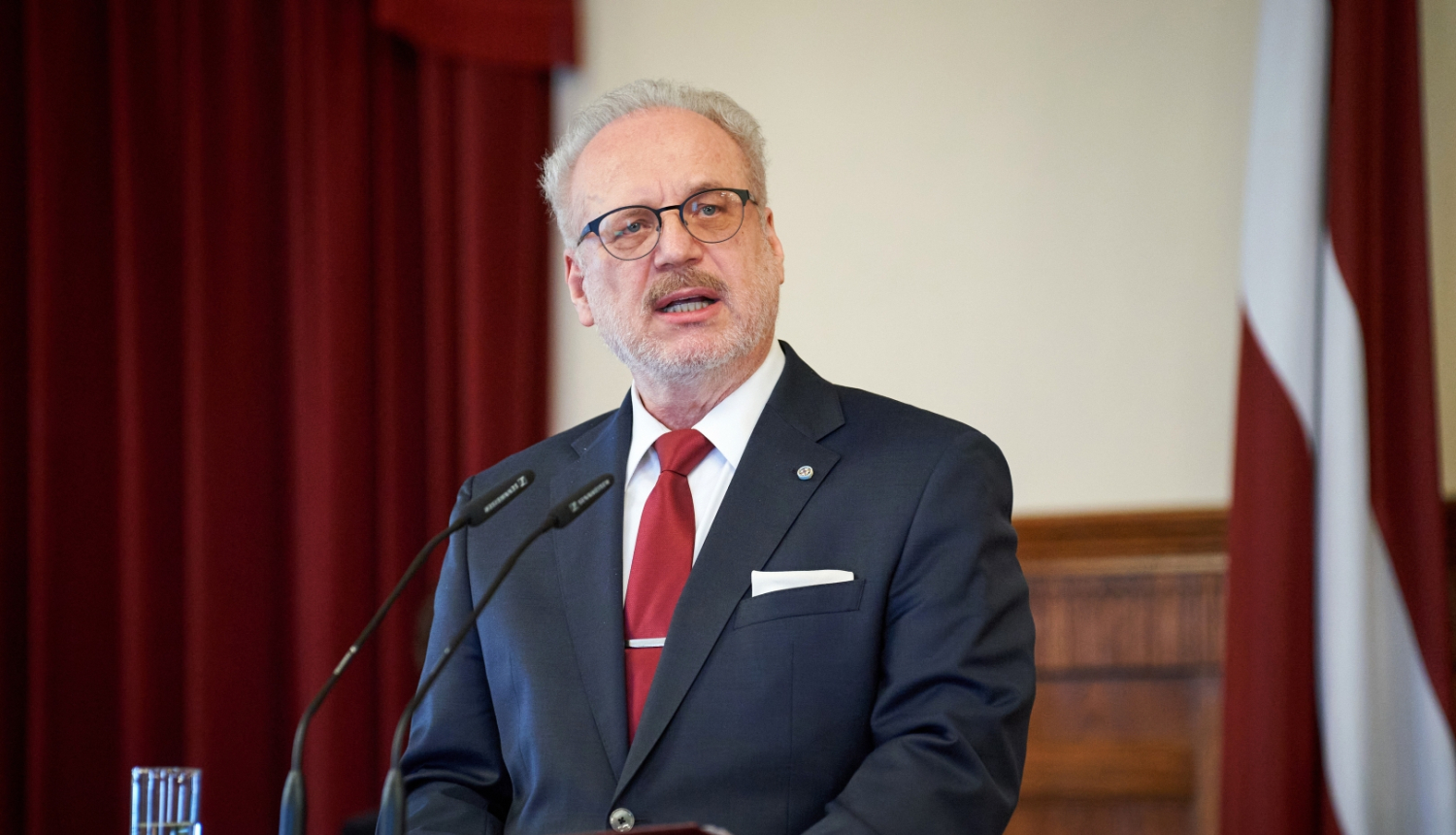President Levits’ video message on the Day of Remembrance for Soviet Genocide Victims
Fellow Latvian citizens,
I
42,000 Latvians, including big farmers, national partisans and their families, were deported to Siberia on 25 March 1949 by the Soviet occupation force.
Almost 95% of them were ethnic Latvians, followed by Russians, Poles and Belarusians.
This was the biggest wave of deportations Latvia has ever experienced. 11,000 of them were children.
This is what we know as Soviet genocide.
II
What goals was alien power pursuing?
They wanted to break the core of our society, our farmers. They also wanted to quell the armed uprising led by partisans hiding in the woods, and support it had.
They wanted to lock the remaining population down in collective farms.
They used terror to transform our land and people beyond all recognition, mould them to the liking and ideologies of USSR.
III
25 March is a remembrance day in independent Latvia. A part of our collective memory.
Our fellow compatriots who suffered the oppression and impunity of alien power will forever remain in our hearts as we continue to mark this day.
IV
It was a crime against humanity. A crime without statutes of limitation. Sometimes, it takes very long to restore justice and bring back rights. Latvia had to wait five decades to achieve that. And justice and individual freedom prevailed eventually.
V
In 1990s, Alfons Noviks, a high-ranking KGB officer who signed off on a document warranting the 25 March acts conceived by Moscow, was convicted of the genocide and the crimes against humanity.
It is extremely important to prosecute the masterminds who stand behind crimes, and their accomplices.
If that is no longer possible, we must prosecute criminal regimes and ideologies. We should not limit ourselves to words when we condemn totalitarian and criminal regimes.
Unfortunately, communist leaders were never tried in international courts for their crimes against Europe and the USSR the way Nazi leaders were.
This led to resurgence of totalitarian ideologies in Russia and the unjust war waged by Putin against Ukraine.
VI
Fellow Latvian citizens,
Evidence is crucial in documenting offences and assessing their gravity. Ukrainian refugees who fled to Latvia are a source of such witness accounts.
Soviet deportation victim accounts provided by our compatriots have been meticulously added to museum collections and researched by museum and archive experts, as well as other memory institutions. It is our duty to bring our collective memory into today and the future.
There are many generations preceding us in this work.
Let us keep our spirits and hopes high. Let us move our free and independent Latvian State into the future for us and generations behind us!




